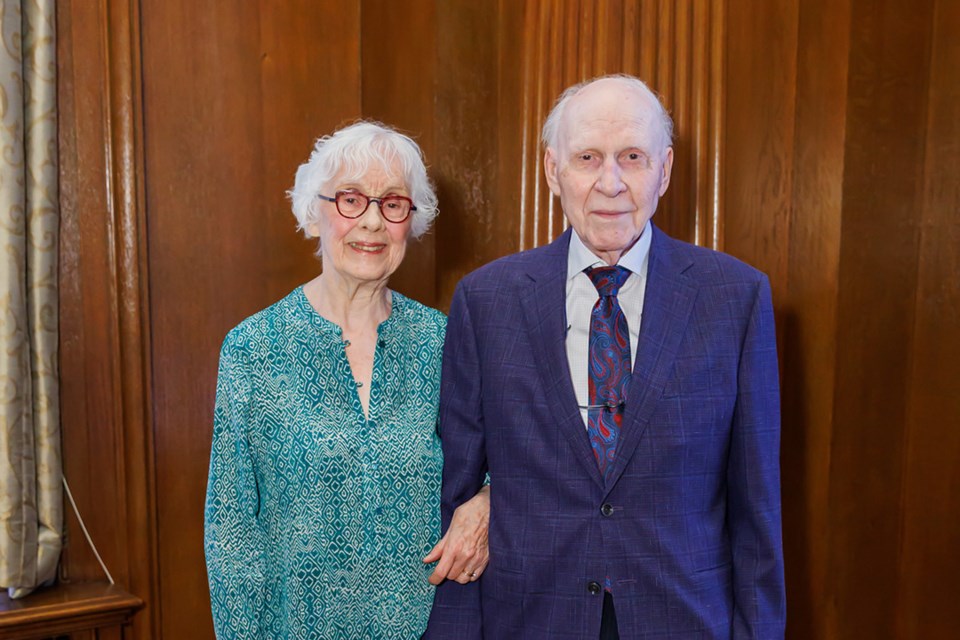SASKATOON — University of Saskatchewan (USask) alumni Dr. Roman Shklanka (BA 1951, BComm’53, MA’57) and PhD’63 from Stanford University and Patricia Shklanka (BSc’58) have generously donated $3 million to create the Shklanka Chair in Precambrian Critical Minerals Systems in the Department of Geological Sciences in the College of Arts and Science.
The funding will support an outstanding scholar who will explore fundamental and applied aspects of critical minerals systems, including ore-forming processes and metal-mineral associations. The chairholder will lead critical research, mentor students, and help to build the future workforce in this emerging field.
“We are grateful for the Shklankas’ extraordinary generosity and support for this chair position,” said USask President and Vice-Chancellor Peter Stoicheff. “Their gift will help position USask as a leader in critical minerals research and support Saskatchewan’s Critical Minerals Strategy, which aims to double the production of critical minerals by 2030.”
Shklanka’s international career as a geologist and mineral explorationist spanned 45 years in the mining industry, and he was inducted into the Canadian Mining Hall of Fame in 2009. Patricia and Roman have a long history in Saskatchewan, with the couple having met in the province decades ago. They now reside in Vancouver, B.C.
“USask has played such a pivotal role in our lives, both personally and professionally,” said Roman. “We are proud to give back to the university and province where it all began for us, and we hope this gift will inspire students to explore and excel in the dynamic field of critical minerals research.”
“Roman and I hold a special place in our hearts for the University of Saskatchewan,” said Patricia. “Where we not only received a world-class education, but also gained valuable skills and a strong work ethic. We hope that this gift will inspire students to pursue their passions in geological sciences and create their own fond memories of USask.”
The chair position will be based in the Department of Geological Sciences in the College of Arts and Science and will provide a pathway for significant developments in the study of critical minerals systems in the Precambrian era.
“The Shklanka Chair will play an important role in mentoring the next generation of USask students who will lead in building the provincial and national workforce in the field of critical minerals systems,” said Dr. Brooke Milne (PhD), dean of the College of Arts and Science at USask. “Thanks to the support of Roman and Patricia Shklanka, our graduates will make groundbreaking contributions to the creation of a greener economy.”
The Shklankas’ gift will support USask’s Be What the World Needs campaign – a $500 million comprehensive campaign to support the university in the areas of critical research, student success, Indigenous achievement, and visionary spaces.
About critical minerals: Critical minerals are the building blocks for the green and digital economy. There is no energy transition without critical minerals: no batteries, no electric cars, no wind turbines, and no solar panels. The sun provides raw energy, but electricity flows through copper. Wind turbines need manganese, platinum and rare earth magnets. Nuclear power requires uranium. Electric vehicles require batteries made with lithium, cobalt and nickel and magnets. Indium and tellurium are integral to solar panel manufacturing.
Source:




